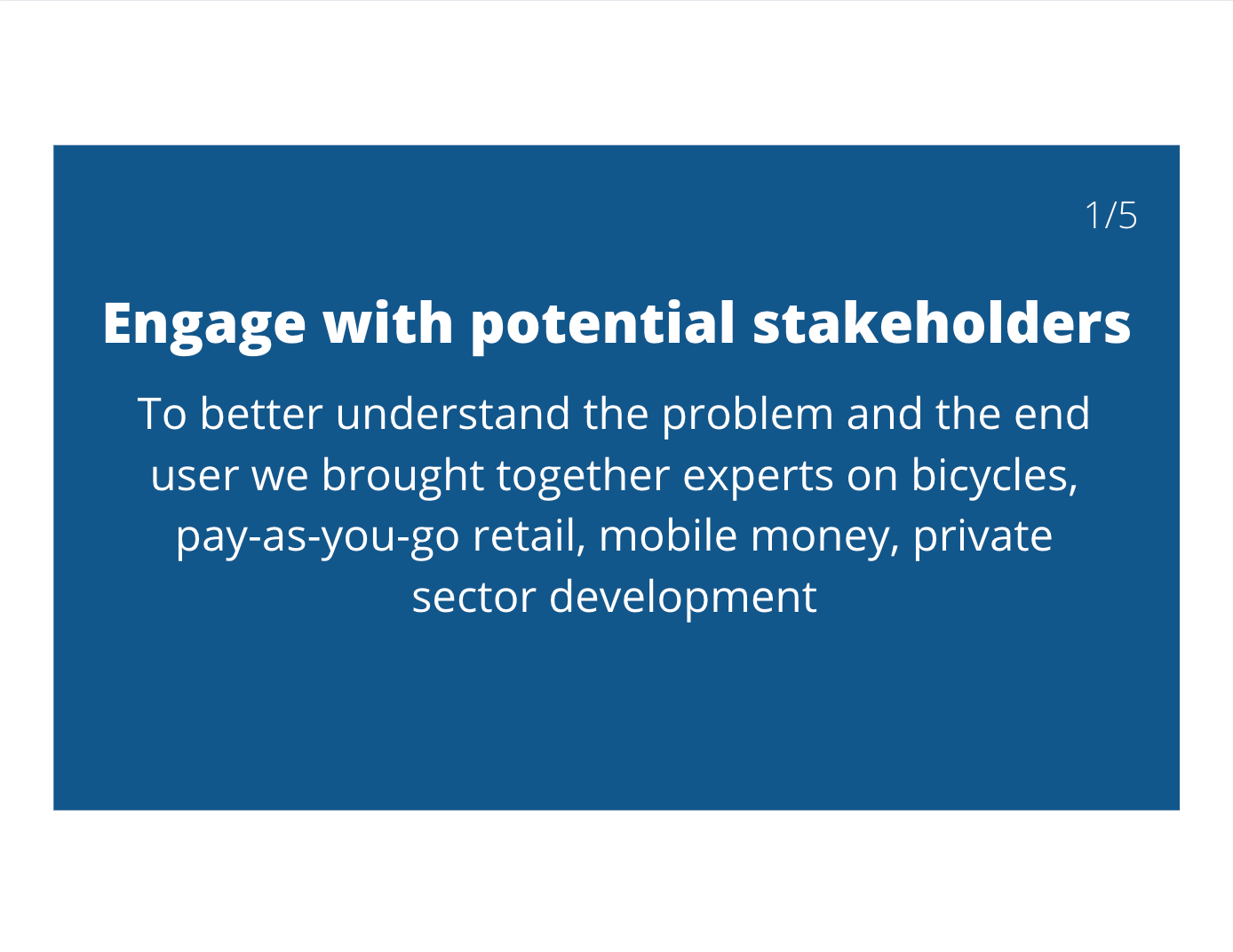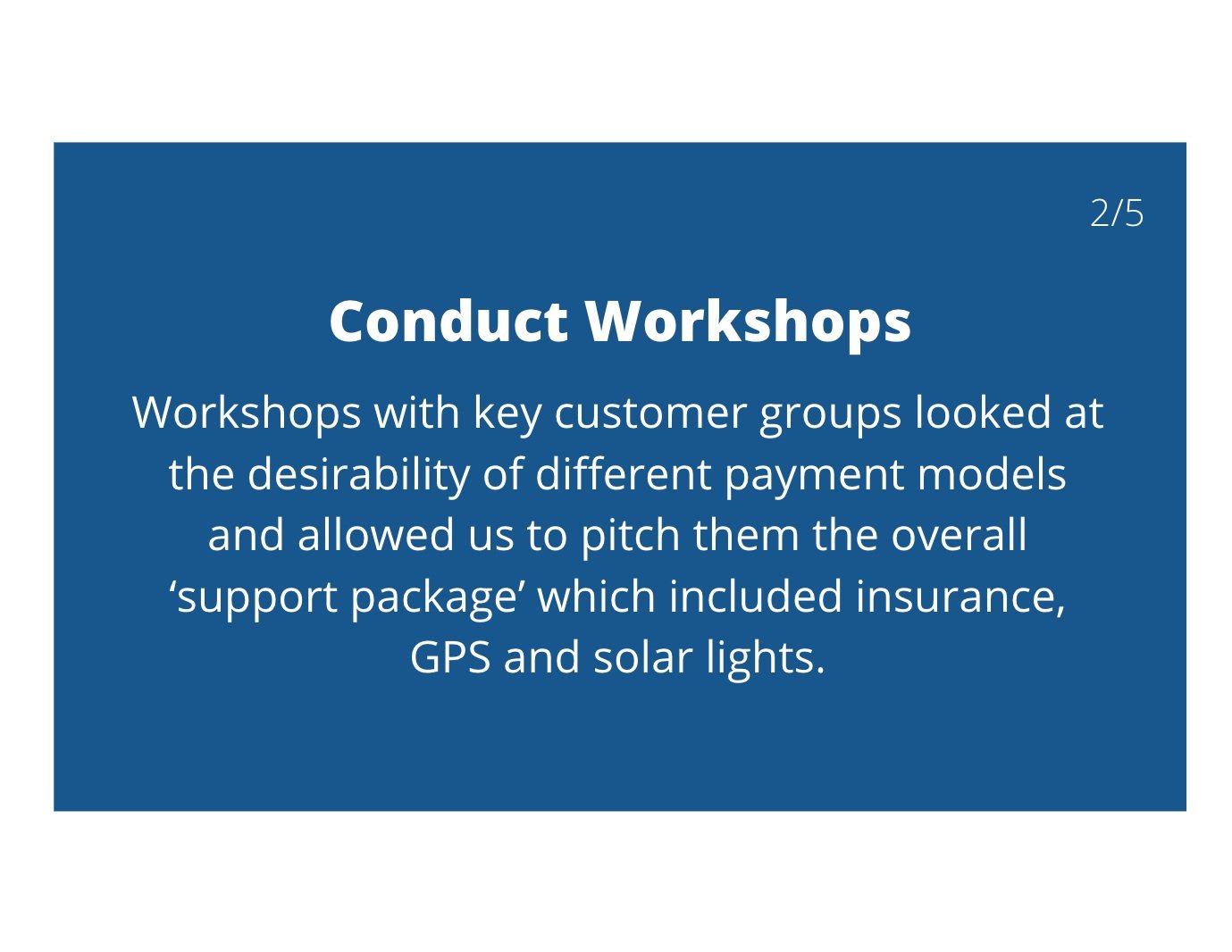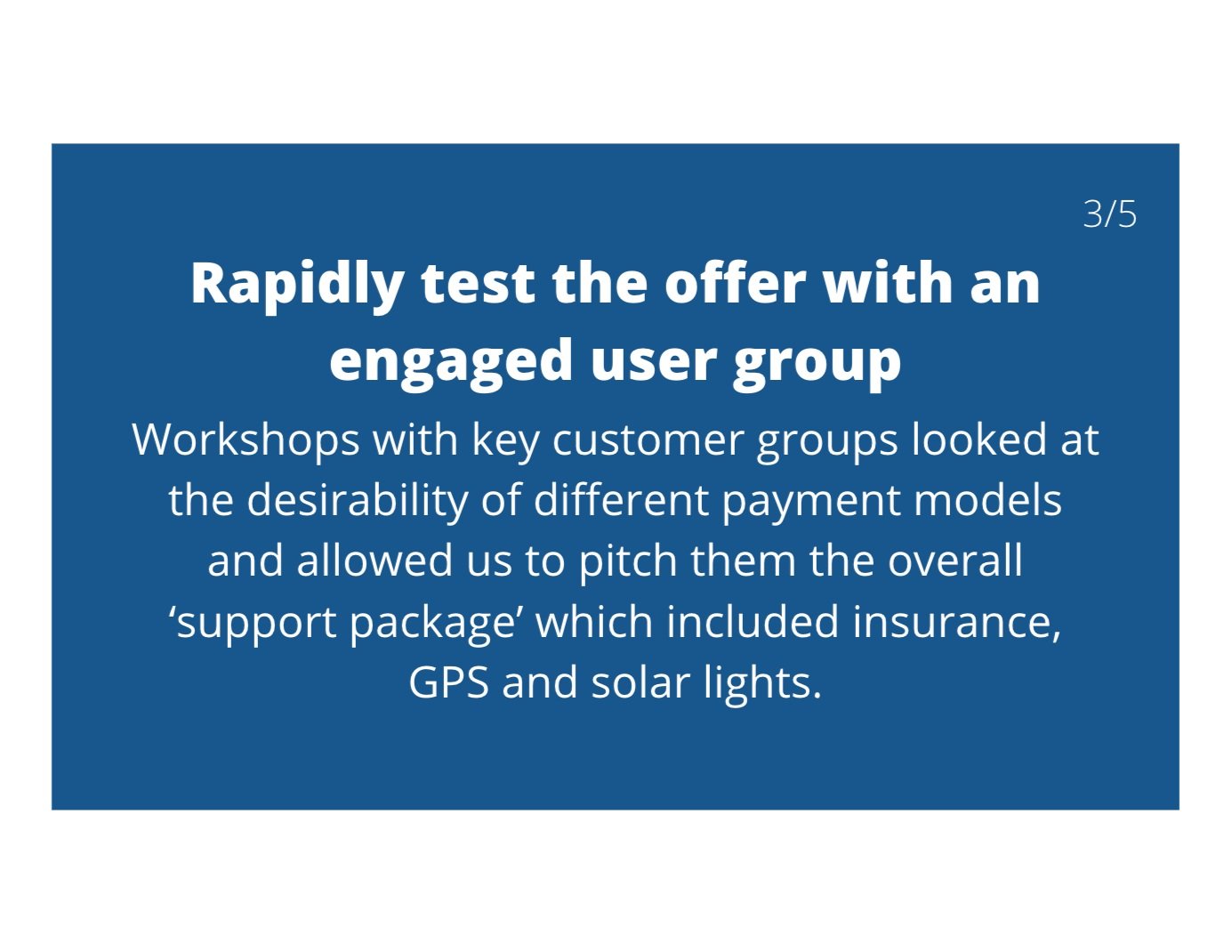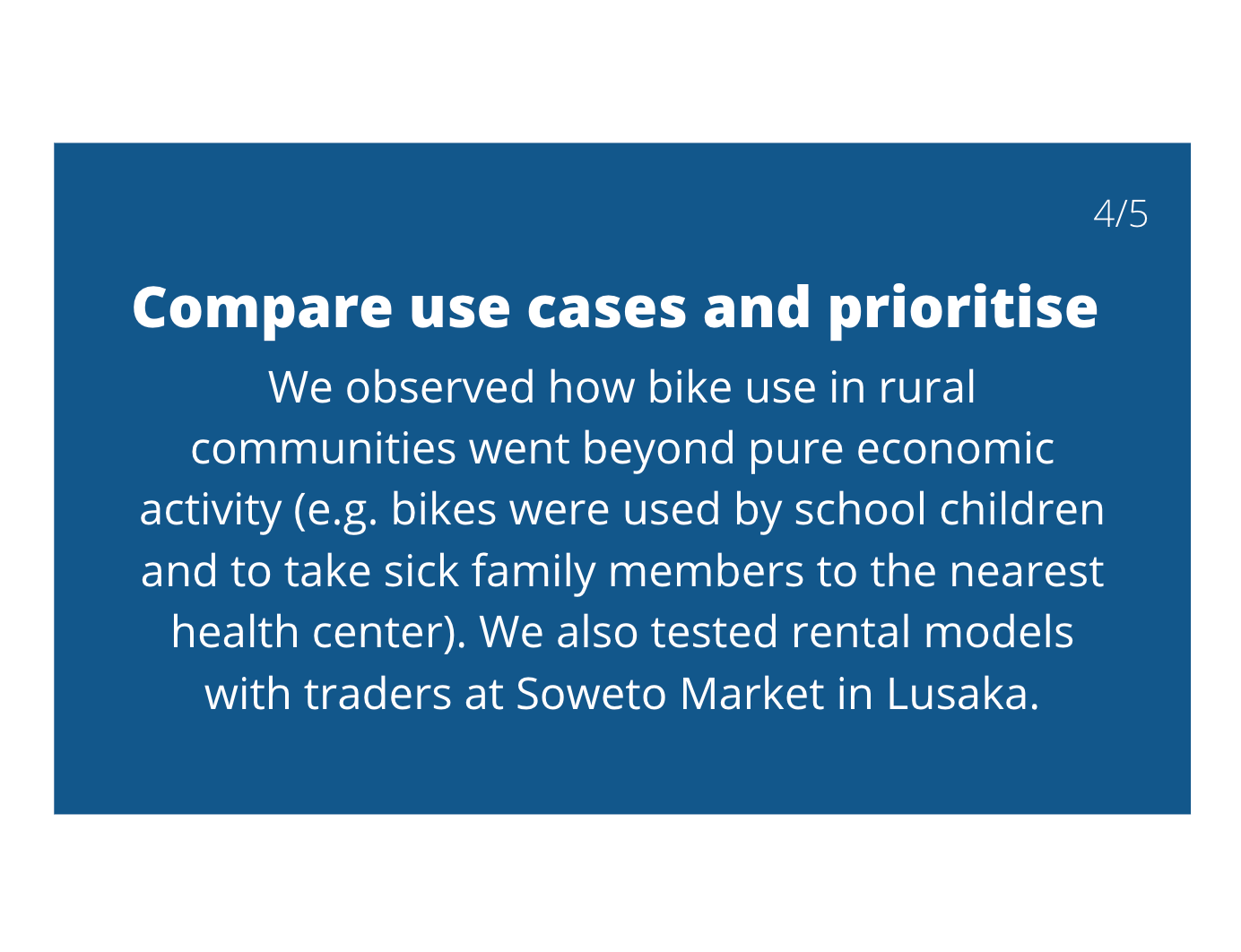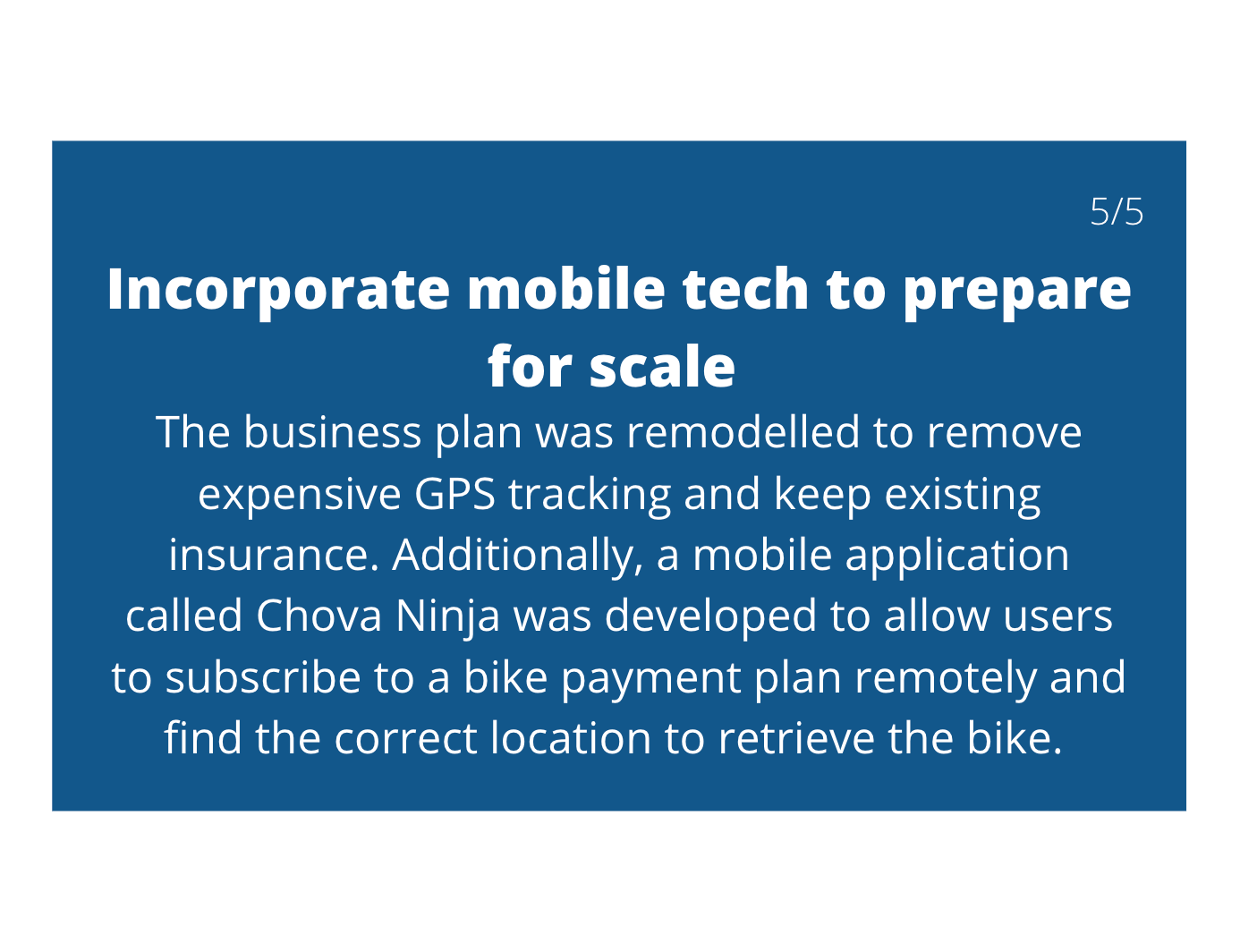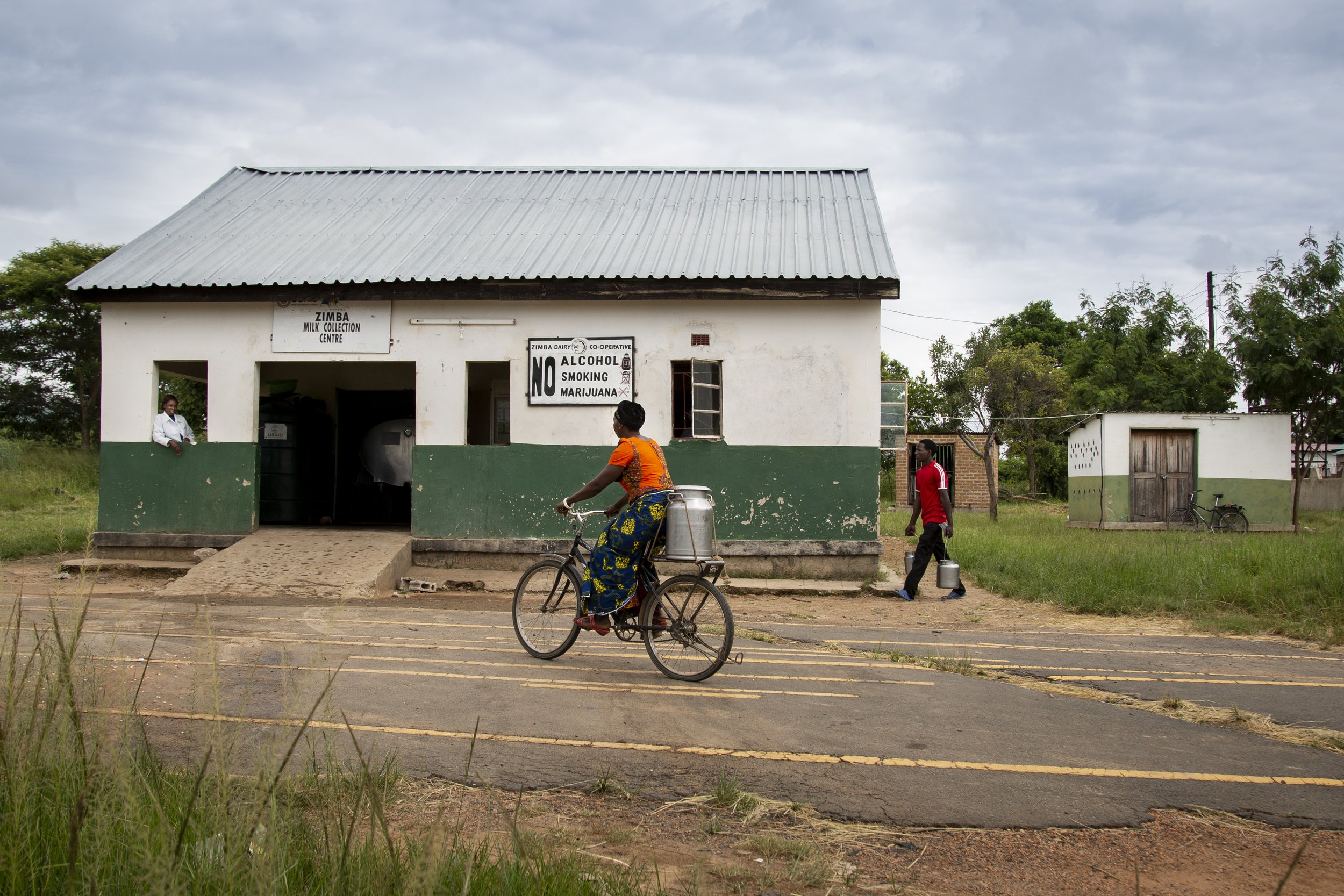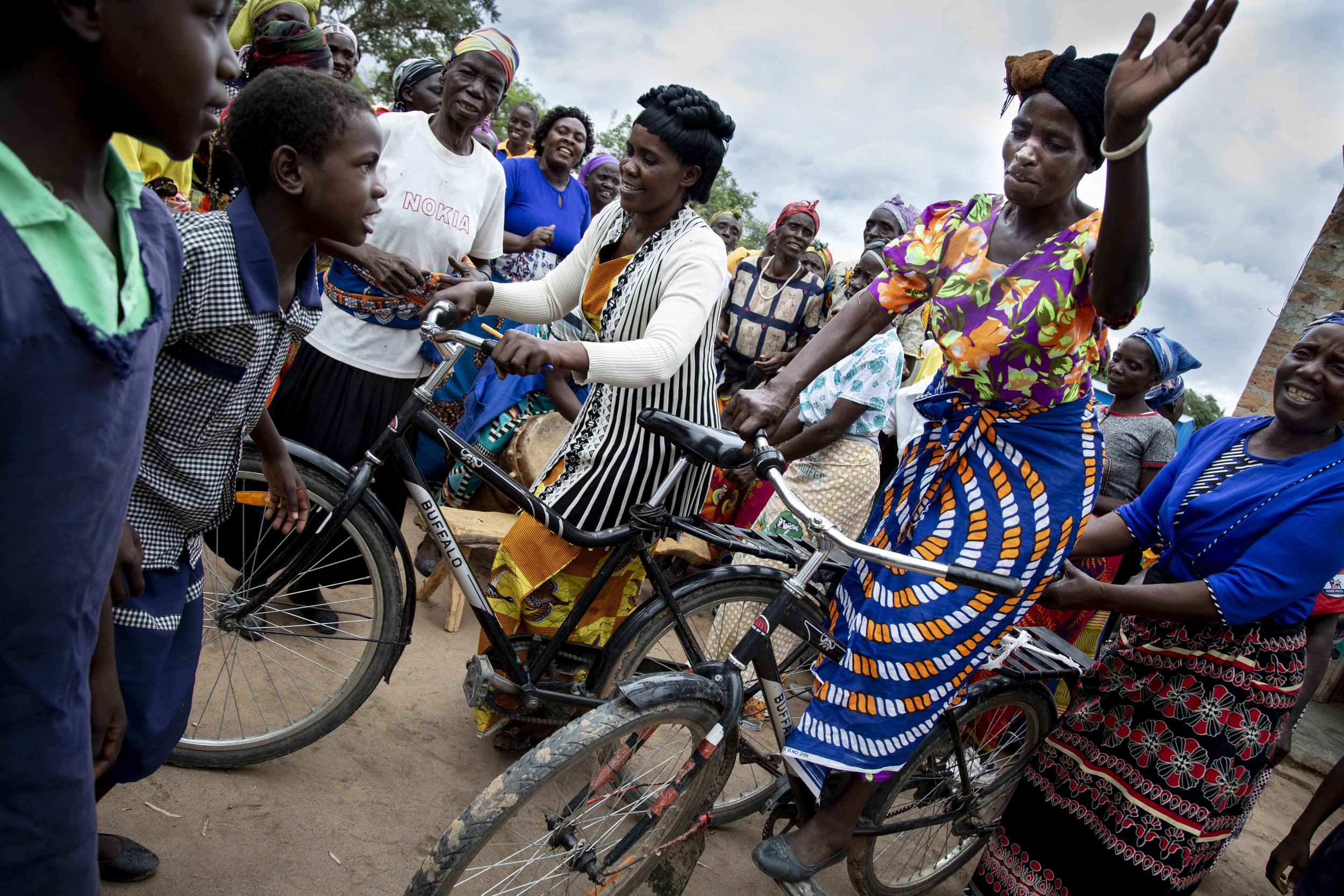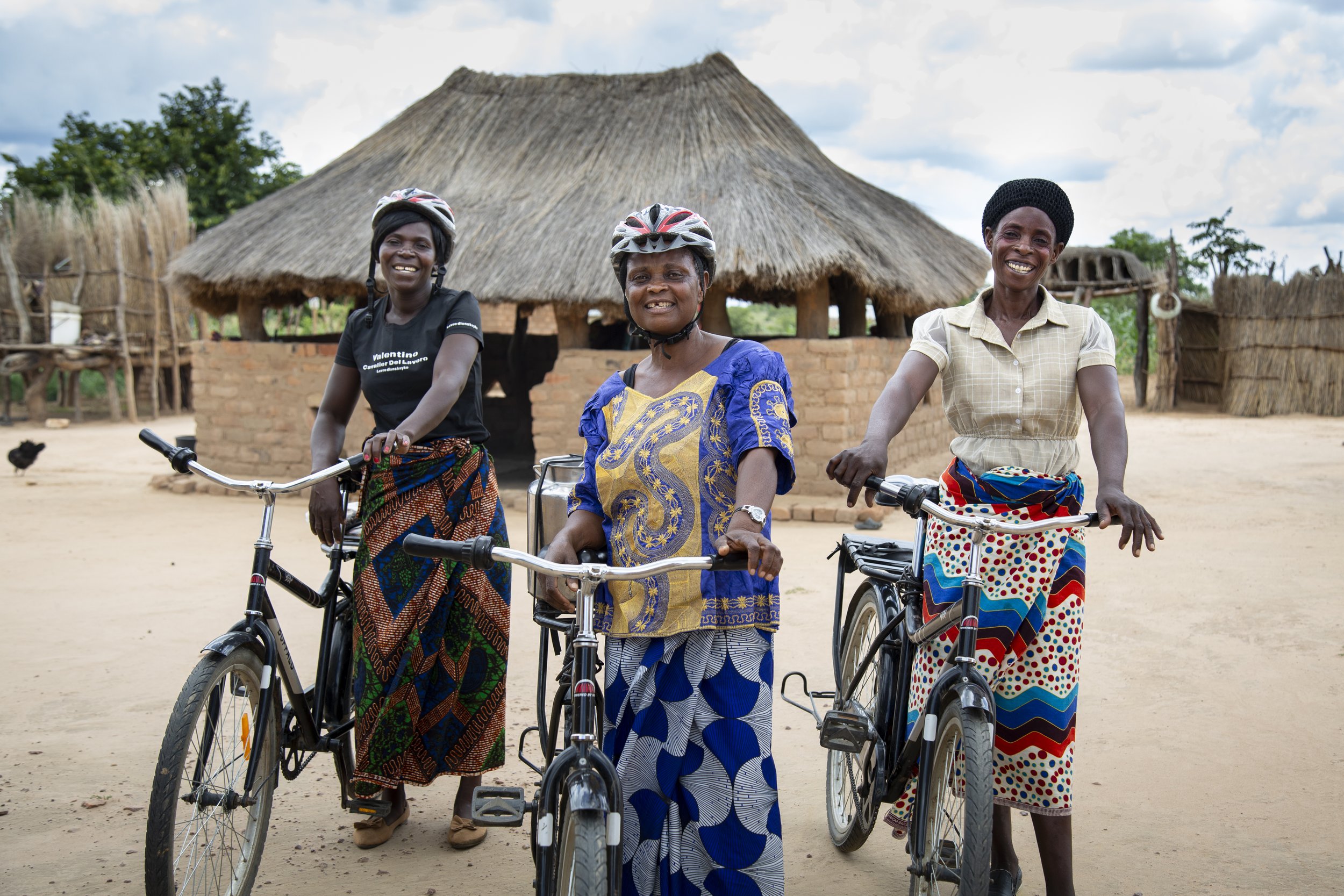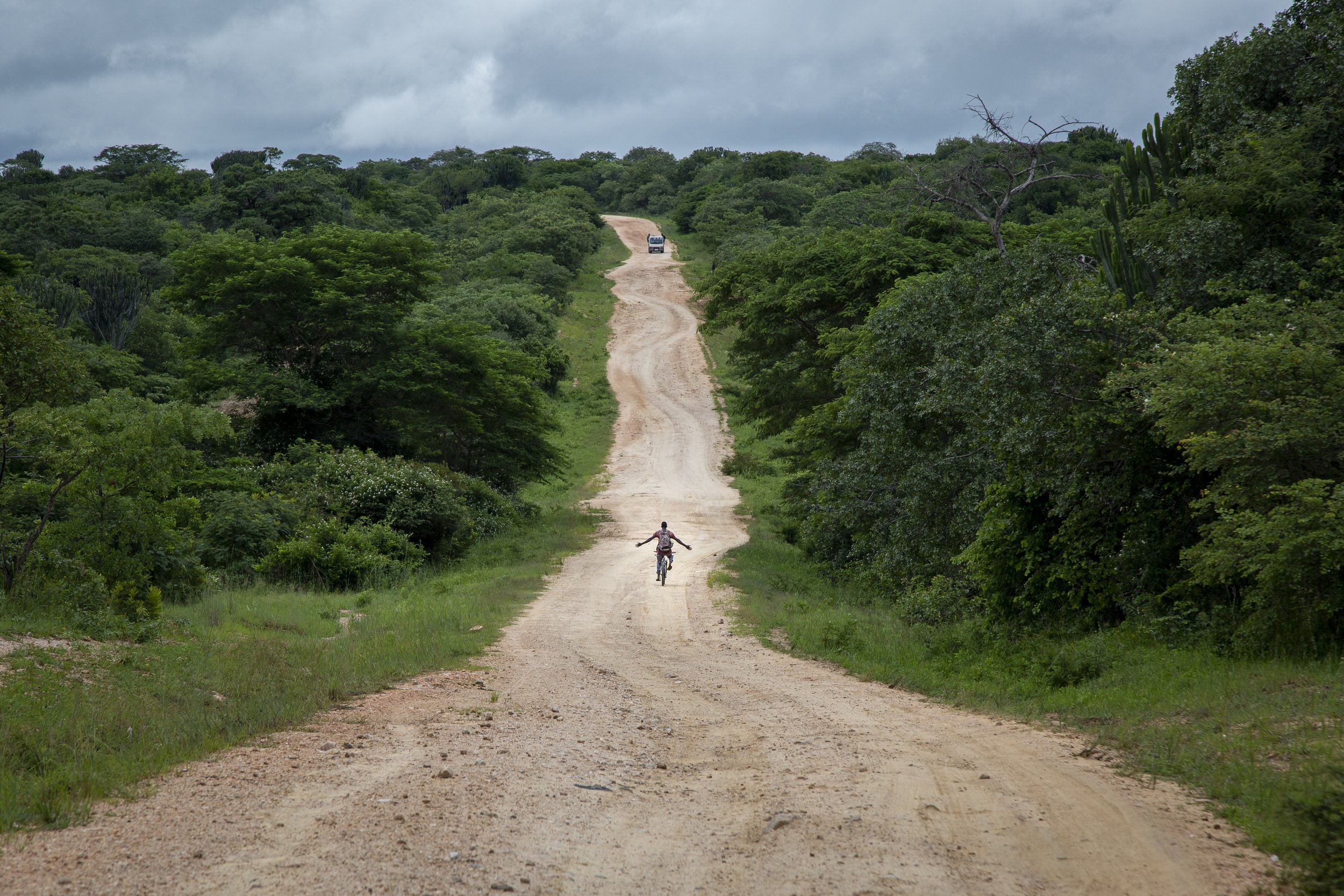Pay-As-You-Go Bikes
Can critical mobility challenges in rural areas of Zambia be solved by allowing people to pay in increments for their bikes?
LOCATION | Zambia
SECTOR | Transport
TECH | Mobile money
TIMELINE | Sept 2018 - April 2020
PIONEER | Steve Beel
PARTNER | Onyx Connect
The Challenge
In Zambia, mobility is an issue that cross-cuts other challenges, such as poverty, health, and education. Because the country has low physical connectivity, particularly in rural areas, improving mobility in Zambia can help achieve social and economic development. Bicycles can provide a robust solution to many mobility challenges in Zambia, but potential users of bikes are often unable to afford to buy one outright. Other forms of transport, such as motorbike taxis used in times of need, are expensive and many find it difficult to afford.
The Idea
The adoption of bicycles as part of a “payment in increments” model can increase ownership of bicycles in the poorest parts of Zambian society. Purchasing a bike outright can be replaced by a rent or rent-to-own model that consists of smaller, more affordable payments. Additional technologies, such as mobile money and GPS technology, can improve access and ensure payment collection.
The Scaling Journey
What we learned
The impacts of the bicycles are multiple: from the economic impact on workers to social uses that contribute to education, health, and general quality of life.
There was a consistently high demand for bicycles, which was shown in the engagement and level of signup to the product, particularly from private businesses.
The business model was built on trust and personal relationships, while integrating into existing systems. Users are engaging with the bicycles as they are seen as valuable parts of community life.
Different payment models were tested, including USSD mobile payments and employee payroll reduction. The latter seemed the most effective and worked in alignment with local labour laws, which provide an allowance for transport, though presents some trade-offs in terms of maximising social impact
All photos on this page were taken by the pilot’s implementing partner, Oynx Connect. Read more
Explore the step-by-step journey of the pilot – Pilot Story
Read about the human impact in “Cycles & Cellphones: A Revolution for Zambia’s Female Farmers” – ReadyMag Feature
Scroll through a picture gallery in “Pedal power: Zambia's female farmers go further by bike” – The Guardian



